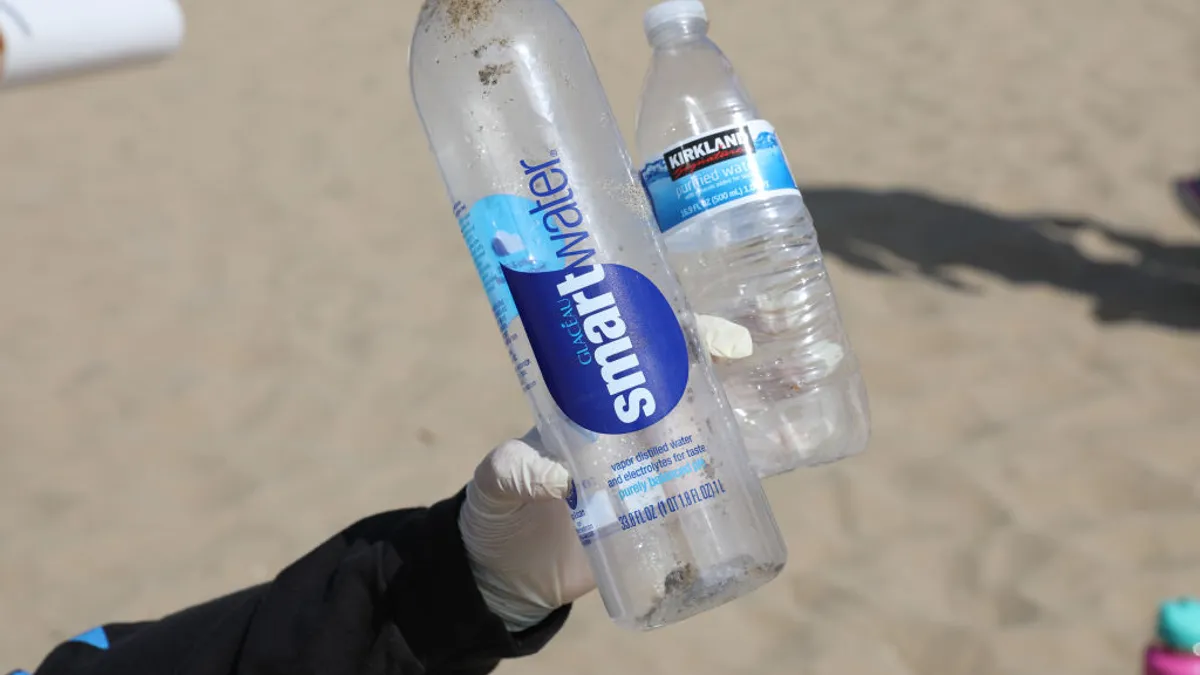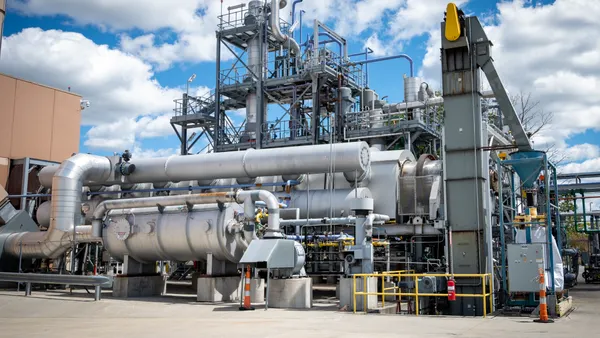Dive Brief:
- The Los Angeles City Council is advancing steps toward phasing out the use of a variety of single-use plastic items, after greenlighting multiple related directives on Feb. 16. It’s one push amid a broader movement in the LA area and throughout the state of California to reduce reliance on plastics and promote reuse systems.
- Near-term policy options the city is exploring further, stemming from recommendations put forth by LA Sanitation & Environment (LASAN) at the end of last year, include a citywide ban on expanded polystyrene (EPS) foam foodware and pushing city facilities and events toward zero waste by phasing out purchase and use of single-use plastics.
- LASAN's November report also outlined a slate of potential policies that could possibly occur within a one or two year time horizon. They include mandating reusable foodware for dine-in services, adding fees for disposable items like cups and straws, and banning water in plastic bottles unless refillable.
Dive Insight:
Los Angeles previously set a goal to send zero waste to landfills by 2050. Local advocates for plastics reduction and reuse policies say the current traction in Los Angeles follows various legislative actions by scores of smaller local governments throughout California, and ties in to many of the same national goals under the Break Free From Plastic Pollution legislation.
Among the next action items, LASAN is working with other departments on a report to be delivered by April 22 regarding how to go about phasing out single-use plastics. An agency spokesperson said in an email last week: "Many types of single-use plastics that we used to place in our blue bins can no longer be recycled, often ending up in the landfill. LASAN is committed to providing strategies that will help empower all Angelenos to find responsible alternatives to using these plastics."
This month’s latest nod from the Los Angeles City Council to explore related policies is linked to LASAN's November report, which in part outlined how EPS foam containers have limited value for recyclers and how plastic bags can clog MRF equipment.
Los Angeles banned thin plastic bags in 2014 and California voters approved a state-level ban in 2016. LASAN's report notes that certain categories of bags that were exempted, as well as thicker bags that have become more common in the years since, are still contributing to litter and marine pollution.
As for foodware, last November the city began implementing a foodware-accessories-on-request ordinance for large restaurants and businesses with 26 employees or more, which will expand to all city businesses come April 22.
More populous Los Angeles County is also considering its own actions to reduce single-use plastics, including requiring that restaurants provide dine-in patrons with reusable items, according to Emily Parker, a coastal and marine scientist at area nonprofit Heal the Bay, which is a member of the Reusable LA coalition. Parker and allies are hoping LA city will consider including that type of reuse policy as part of its current considerations. The county is also seeking to require that single-use foodware be either recyclable or compostable, and as such the plethora of area haulers and recyclers responsible for managing it have been an essential part of the conversation, she said.
Opponents in the area have included the California Chamber of Commerce and the California Restaurant Association, Parker noted, adding that advocates are continually striving to show the cost-saving potential of a transition to reuse systems. Supporters include groups such as the National Stewardship Action Council.
Craig Cadwallader, who volunteers with the Surfrider Foundation as policy coordinator for its South Bay chapter covering the southern half of LA County, said he's optimistic on how action in the Los Angeles area could serve as a tipping point for statewide policy. According to Cadwallader, around 150 California municipalities had enacted plastic bag ordinances at the time the state implemented its own ban, and the number of municipalities with foodware ordinances is currently similar.
LASAN's November report also offered state-level policy recommendations — including bans on non-recyclable packaging, disposal of textiles, and PFAS in foodware — noting that legislation on extended producer responsibility or packaging are "best implemented at the state level." The council's February directive calls for a resolution to be drafted in favor of such state policies.
Also coming up this year is a statewide ballot measure in November aimed at reducing plastic waste across California, in part by imposing a 1-cent fee on single-use plastic packaging or foodware items.
Derek Dolfie, legislative representative at the League of California Cities (Cal Cities), said in a statement that the organization “has worked with a large coalition of local governments, waste haulers, and environmental groups to support efforts to make all single-use plastics bought or sold in California recyclable or compostable and to develop strong domestic markets for recyclable materials.”











